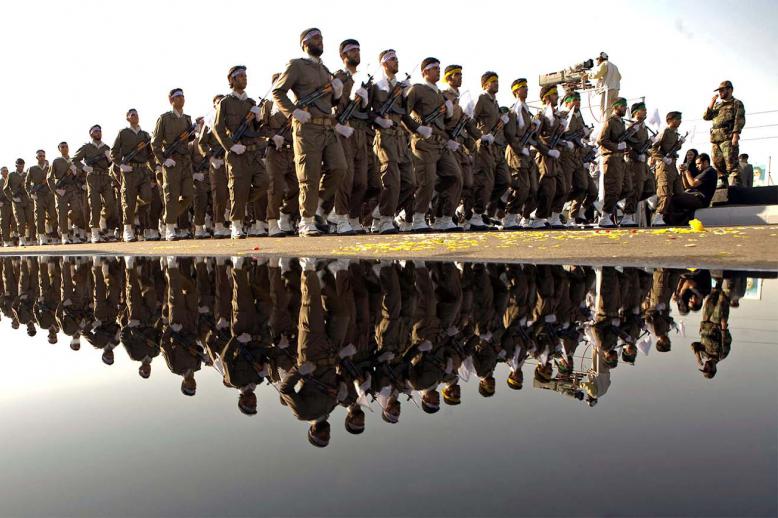How Trump’s Deal of the Century became old news
Does anybody remember the Deal of The Century? Granted, there are plenty of other distractions in the Middle East today. Even so, the measure of leadership is not simply to be swept along by the tide of events but to make history.
The Deal of the Century has been shoved to the margins, not only in the Palestinian territories and Israel, where embattled politicians cannot be bothered by an American plan, whatever its merits — or absence thereof.
Impeachment has sucked the wind out of something as esoteric as yet another US diplomatic effort in the Middle East. Trump’s team of amateurs has made the plan’s release hostage to an imagined moment when all parties will cheer its publication. If such a plan exists, don’t expect its release anytime soon.
The international community, which has deferred to Washington’s diplomatic agenda since Camp David four decades ago, is prepared to humour Washington’s declared interest in peacemaking along lines that repudiate basic, long-held diplomatic constants. It is content to watch without protest as institutions such as the Quartet, created to promote an agreement in line with a fast-fading international consensus in favour of a two-state solution, wither.
Russian President Vladimir Putin, fresh from his achievements in nearby Syria, issued a standing invitation to Israeli Prime Minister Binyamin Netanyahu and Palestinian President Mahmoud Abbas to turn a new diplomatic page — in Moscow.
Russian troops are keeping the peace along the Golan and the Euphrates but, if leadership is the ability to turn a diplomatic agenda into hard facts on the ground, Moscow will be hard-pressed to displace Washington, even under US President Donald Trump’s erratic leadership, as an arbiter of Israeli-Palestinian diplomacy.
Trump has been active in the Israeli-Palestinian arena. His unprecedented gifts to Israel’s right-wing are well known. He does have a remarkable ability to make history and he revels in undisciplined actions that upend the rules.
Trump’s forte, however, is unilateralism, not diplomacy and this is the reason the US plan for Israeli-Palestinian peace will never see the light of day.
Those looking for a convincing rationale for this development need look no further than the White House.
The Trump administration is scoring big in its effort to dismantle key elements of the international consensus supporting an end to occupation and the creation of a Palestinian state at peace with Israel but Trump’s competing vision is one of least competent efforts to resolve the Arab-Israeli dispute in a century of conflict.
Trump’s weaknesses as president and leader are at the heart of this spectacular failure.
The ingredients for diplomatic success — in this case peace between the Israelis and the Palestinians — are so much more than a simple idea; in Trump’s transactional vocabulary, a “deal.”
There must be a system in place in the White House and throughout the US foreign policy and security, bureaucracy to conceptualise not just a diplomatic destination but also practical mechanisms to engage the players.
There must be a process that is competently and skillfully managed with a single-minded attention to achieve the desired outcome, backed by the assurance and credibility of presidential interest and commitment.
Virtually every US president since Harry Truman has, for better or worse, mobilised the machinery of the US policymaking and security bureaucracy in pursuit of diplomatic Arab-Israeli understandings crafted to win international support.
Whatever one thinks of them, the Camp David Accords and the Oslo Accords stand out among US diplomatic achievements over recent decades as testaments to Washington’s ability to craft and implement complex diplomatic engagements that won the enthusiastic support and commitment of former antagonists.
These essential ingredients are absent in the Trump White House.
Does anyone think anyone in the Trump administration has the discipline and experience to conceptualise a plan for peace, to mobilise the instruments of its own government and, most important, to win the president’s committed support for such an effort?
Do Trump’s relations with North Korea, Iran, China, Israel, the Palestinian territories and Syria suggest an interest in any diplomatic practice other than strong-armed unilateralism?
Trump’s team dismissed such concerns as evidence of a discredited allegiance to old ideas that have failed to deliver on their promise of Palestinian independence and an end to Israel’s occupation.
These are “the stale, decades-old talking points on this conflict” that the Deal of the Century aims to replace.
There is no shortage of reasons to criticise the inability of the international community, foremost among which is the United States, to establish a viable Palestinian state at peace with Israel but there is no basis for thinking that Trump’s Washington is in a position to orchestrate, organise, administer and lead a diplomatic engagement that would result in the creation of a Palestinian state and an Israeli retreat from the West Bank.
Geoffrey Aronson is a non-resident scholar at the Middle East Institute in Washington.
This article was originally published in The Arab Weekly.







